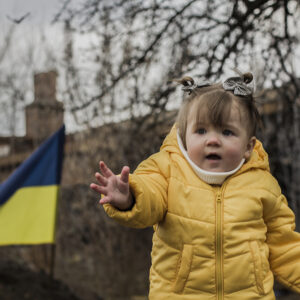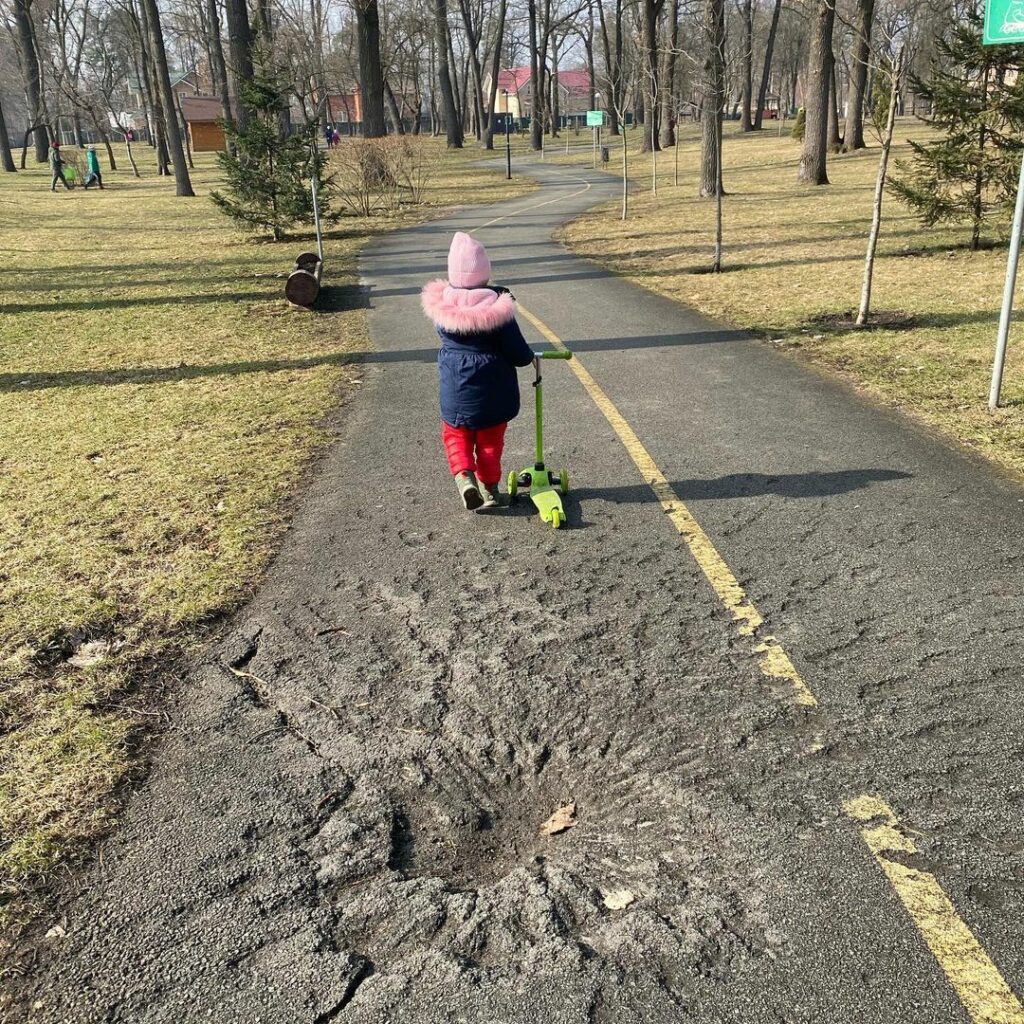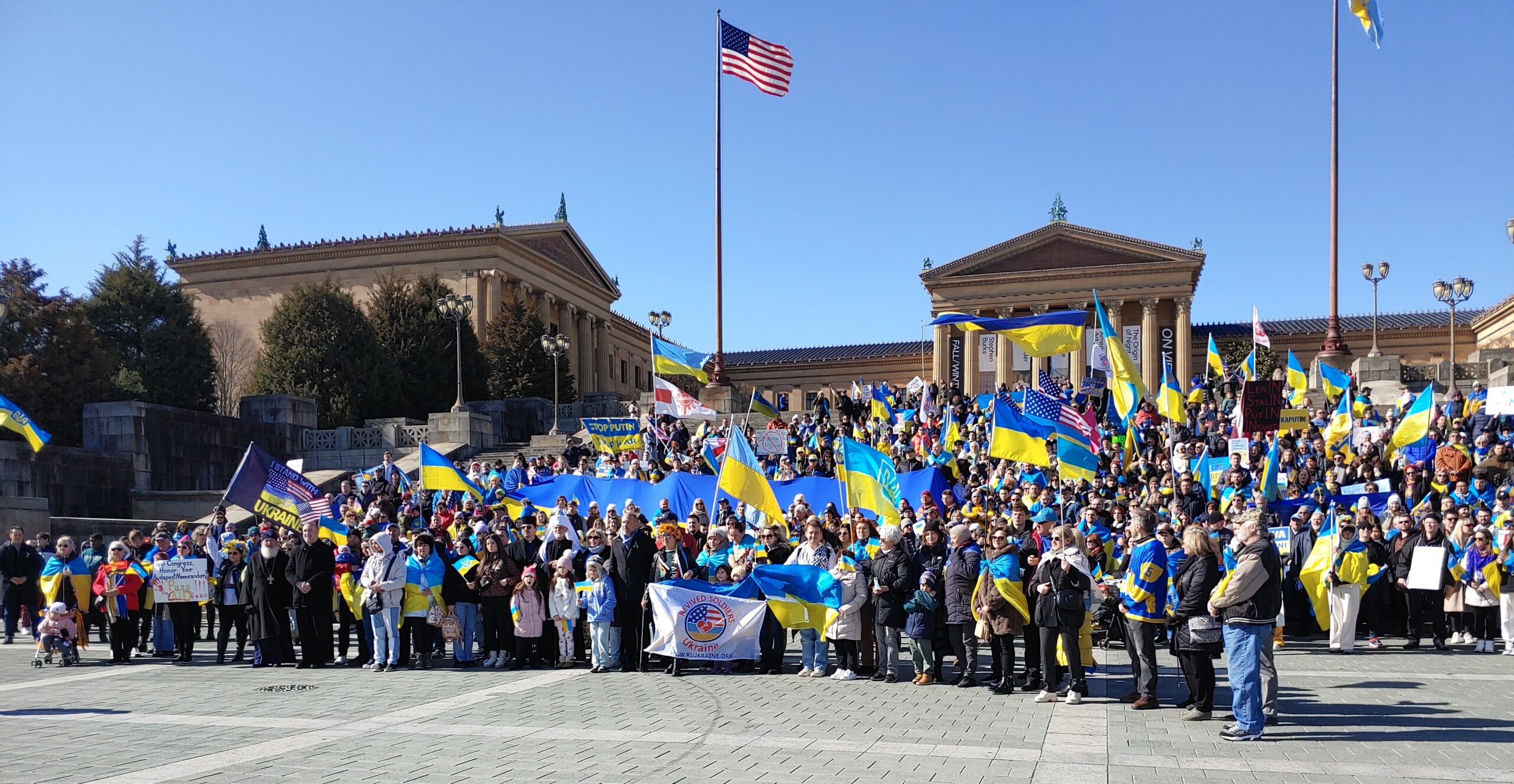
Since the inception of Russia’s all-out war, 468 children in Ukraine were killed and more than 947 were injured. Russia also continues to kidnap and deport Ukrainian children to either Russian-controlled Ukrainian territories or Russian regions.
In response to Russia’s kidnapping of children, a public organization Save Ukraine was established to conduct missions to track the deported children. The European Commission is planning to launch an additional initiative to help return the Ukrainian children stolen by Russia.
According to the data presented by the Yale School of Public Health more than 6, 000 children have been forcibly resettled by Russian occupiers and authorities to the facilities located on the territories stretching from Crimea to Siberia. At the same time, Kyiv’s estimate of the kidnapped by Russia is more than 20,000 children. This number is likely much higher as the Russian authorities do not provide information on the deportees, and Ukrainian officials and public groups that document ongoing deportations of adults and children do not have access to the regions currently occupied by Russia.

Millions of children in Ukraine have been displaced by Russia’s all-out war and live under severe conditions. A park in Irpin, (Bucha Raion, Kyiv Oblast, Ukraine). Photo courtesy of Darya Kasyanova.
To transfer children to Russian-controlled territories and Russian regions, the Russian representatives used the guise of medical care, rehabilitation, and evacuation. Ukrainian parents were told that their children would be sent primarily to Crimea. The Russian representatives promised they would come back home soon, but what was supposed to be a temporary stay for safety purposes turned into months of kidnapping. When children were not returned, many parents sounded an alarm bell and sought ways to bring their children back home. Over the past few weeks, more than fifty Ukrainian children were returned to Ukraine.
The early reports about Russia’s illegal deportation of Ukrainian children began to appear shortly after the full-scale assault on Ukraine in 2022. Since the summer of 2022, the Institute for the Study of War has consistently published commentaries about Russia’s violation of international laws and agreements regarding the forced resettlements of both adults and children who are citizens of Ukraine and the establishment of filtrations camps. ISW subsequently declared that Russia’s actions violate the Convention on the Prevention and Punishment of the Crime of Genocide.
On March 17, 2022, the International Criminal Court issued warrants of arrest for Vladimir Putin, President of the Russian Federation, and Maria Lvova-Belova, Commissioner for Children’s Rights in the Office of the President of the Russian Federation, who, according to the Court, are “allegedly responsible for the war crime of unlawful deportation of population (children) and that of unlawful transfer of population (children).”
Maria Lvova-Belova also oversees the adoption procedure for Russian families who are willing to adopt children from Ukraine. Since the secrecy of adoption is protected by law, adoptive parents have the right to change the adoptees’ names and other biographical data. This further complicates the current and future endeavors to accurately identify those who have been deported by Russia. During her conversation with Putin in February of 2023, Lvova-Belova mentioned that she adopted a fifteen-year-old teenager from Mariupol, a Ukrainian city that became known worldwide after Russia bombed the drama theater which the Mariupol residents used as a shelter with the inscription “Children” on the ground nearby. She said that now she knows what it means to be a mother of a child from the Donbas: “It’s difficult but we undoubtedly love each other.”
By deporting children, Russia targets the most vulnerable and the most unprotected. A number of children from orphanages fell victim to Russia’s heinous resettlements. Russian families are still encouraged to adopt Ukrainian children following a simplified adoption procedure. The children’s ages range vastly and include those who can provide their names as well as infants. The latter entails the impossibility to identify these children as kidnapped, deported, and illegally adopted in the future unless Russia after the change of the current Kremlin regime cooperates on the matter.
Under the control of Russia, the current generation of Ukrainian children is re-educated. Russian educational programs continue to promote the Kremlin propaganda about the war in Ukraine, presenting Russians as “saviors.” The Ukrainian children are told that their now former country is occupied by a “neo-Nazi Kyiv regime” and Russia’s “brotherly mission” is to liberate the Ukrainians who “forgot” that they and the Russians are “one people,’ i.e., Russians. Children who were returned to Ukraine testify that they were punished if they refused to sing the Russian national anthem or if they called themselves Ukrainians. They were subject to forced Russification and psychological manipulation. On multiple occasions, the deported children were told that their parents abandoned them, and therefore need to be grateful to Russia and the Russians who “sheltered” them.
The political indoctrination of deported children in Russia includes participation in patriotic youth organizations, which focus on military attitudes. They teach to respect Russia and Putin as saviors and cultivate loyalty to Russia by abandoning the Ukrainian identity. Children are systematically instructed that Ukraine, which is “not a real state,” will be part of Russia soon.
Children and young adults whom the Ukrainian authorities managed to return to Ukraine shared that the Russians made derogatory and discriminatory comments about their Ukrainian identity. When deported, Ukrainian children continue to be taught how to adopt Russian identity and become “proper Russians.” These re-education efforts align with the assessment of Russia’s war on Ukraine as cultural genocide and ethnic cleansing to eradicate Ukraine as a sovereign state and Ukrainians as a distinct nation.
Not only is the re-education damaging in terms of how children see and perceive their identity in connection to the country where they were born but it is also detrimental to the psychological state augmented by undergoing a deeply traumatic experience of war.
While committing war crimes that fall under the category of genocide, Russia at the same time lays foundations for the future interstate confrontations.
The areas which are currently occupied by Russia are being repopulated with Russian citizens who are promised not only jobs but also permanent accommodation in Russian-controlled Ukrainian territories. This clearly contributes to the change in the population landscape both in Ukraine and Russia. While Russia absorbs a significant amount of the younger population, Ukraine is being deprived of its younger generation, and at the same time is subject to the influx of those who identify themselves as Russians. Thus, Russia is strategically turning the Ukrainian territories where the predominant population before the war consisted of Ukrainians into areas in which the majority of the new population could be presented in the future by Russians.
While some children are more flexible in terms of adopting new national identities, others demonstrate more resistance toward forcible re-education and re-identification. This can create hostile circumstances for future conflicts based on ethnic and national grievances and aspirations.
In addition to overtly abusive treatment of children that includes forced indoctrination and re-education accompanied by discriminatory comments and physical punishment, Russia continues to carry out its policy of denial of Ukraine as a sovereign state and Ukrainians as a nation distinct from Russians.
The Soviet Union, whose successor Russia has been presenting itself and whose past Russia has been vehemently glorifying for decades now, executed a number of horrendous deportations. By kidnapping and deporting children from Ukraine, Russia today reincarnates time and again the tactics of Soviet crimes violating human rights. These acts of violence and aggression are disguised by the propaganda slogans of “help” and “liberation” which, too, are reminiscent of patterns of the Soviets when their troops were sent to Poland alongside Hitler’s invasion in 1939. In this sense, Russia is indeed a successor of the Soviet Union; moreover, it also reinvigorates the practices of genocide, ethnic cleansing, and political indoctrination of the youth widely performed by both Nazi Germany and the Soviet Union.





